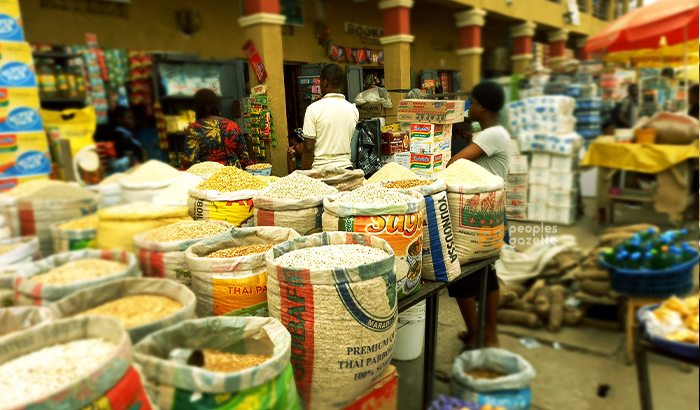Food inflation in Nigeria soared to 40.66 per cent in May.
This was as the cost of food rose from 25.25 per cent in June 2023 to 40.66 per cent in May 2024, reflecting a steady rise in the cost of living.
This is contained in the latest Consumer Price Index and Inflation report released by the National Bureau of Statistics.
A breakdown of the data revealed that food commodity prices rose steadily from 25.25% in June to 26.98% in July, 29.34% in August, 30.64% in September, 31.52% in October, 32.84% in November, and 33.93% by the end of December 2023.
The rate continued to climb to 35.41% in January, 37.92% in February, surpassed 40% in March, reaching 40.53% in April, and 40.66% in May.
“The food inflation rate in May 2024 was 40.66 per cent on a year-on-year basis, which was 15.84 per cent points higher compared to the rate recorded in May 2023 (24.82 per cent).
“The average annual rate of Food inflation for the twelve months ending May 2024 over the previous twelve-month average was 34.06 per cent, which was 10.41 per cent points increase from the average annual rate of change recorded in May 2023 (23.65 per cent),” the report said.
The bureau reported that semovita, oatflakes, yam flour, garri, beans (under the bread and cereals category), as well as Irish potatoes, yams, and water yams (under the potatoes, yam, and other tubers category) contributed to the year-on-year rise in food inflation. Other contributors included palm oil and vegetable oil (under oils and fats), stockfish, mudfish, and crayfish (under the fish category), as well as beef, live chicken, pork, and bush meat (under the meat category).
In a similar development, the NBS revealed Bauchi, Kogi, and Oyo as Nigeria’s three most expensive states on a year-on-year basis.
Meanwhile, Headline Inflation in Nigeria rose to 33.95 per cent in May 2024 from 33.69 per cent in April.
Get instant and latest news updates via Our WhatsApp Community or Google News online channel.


